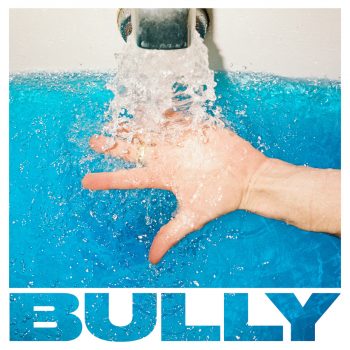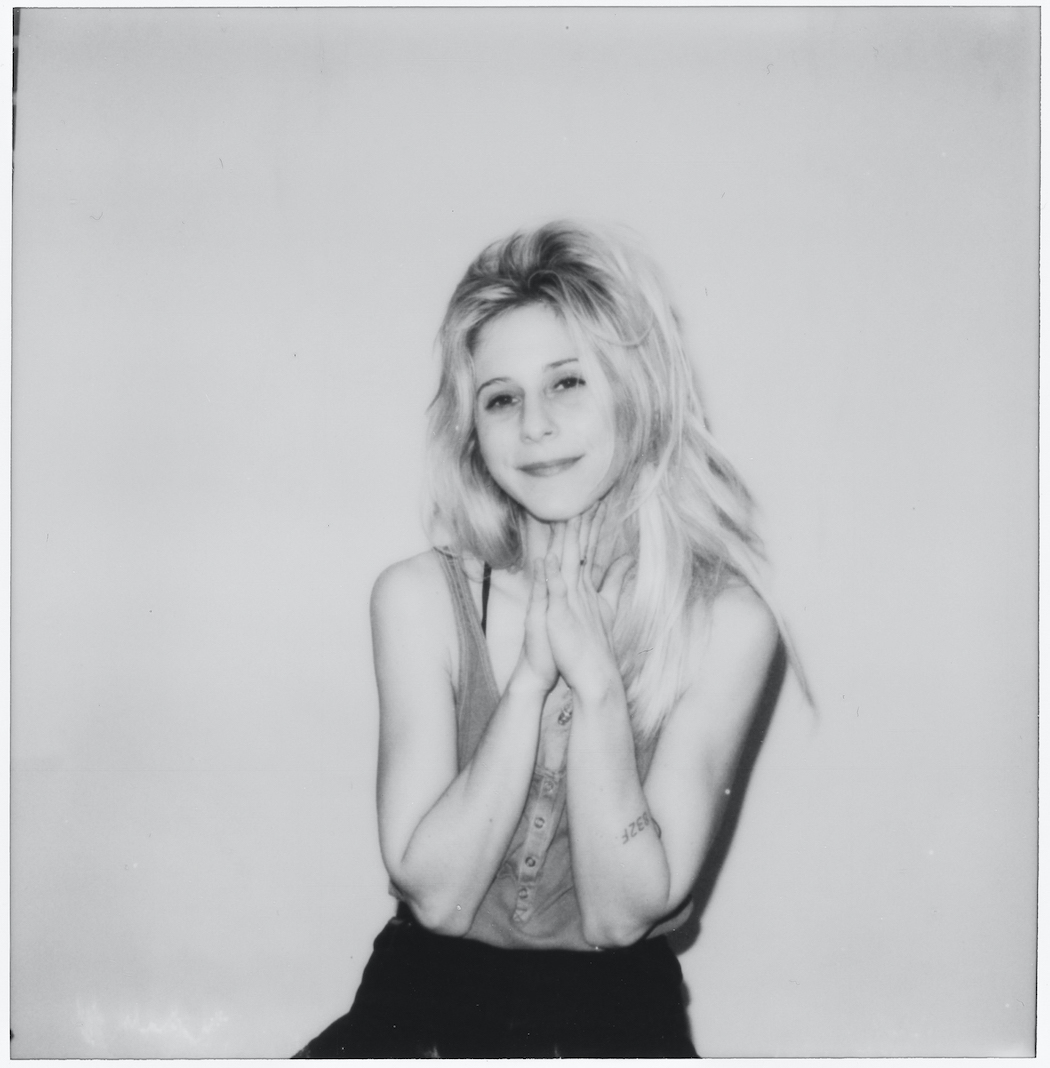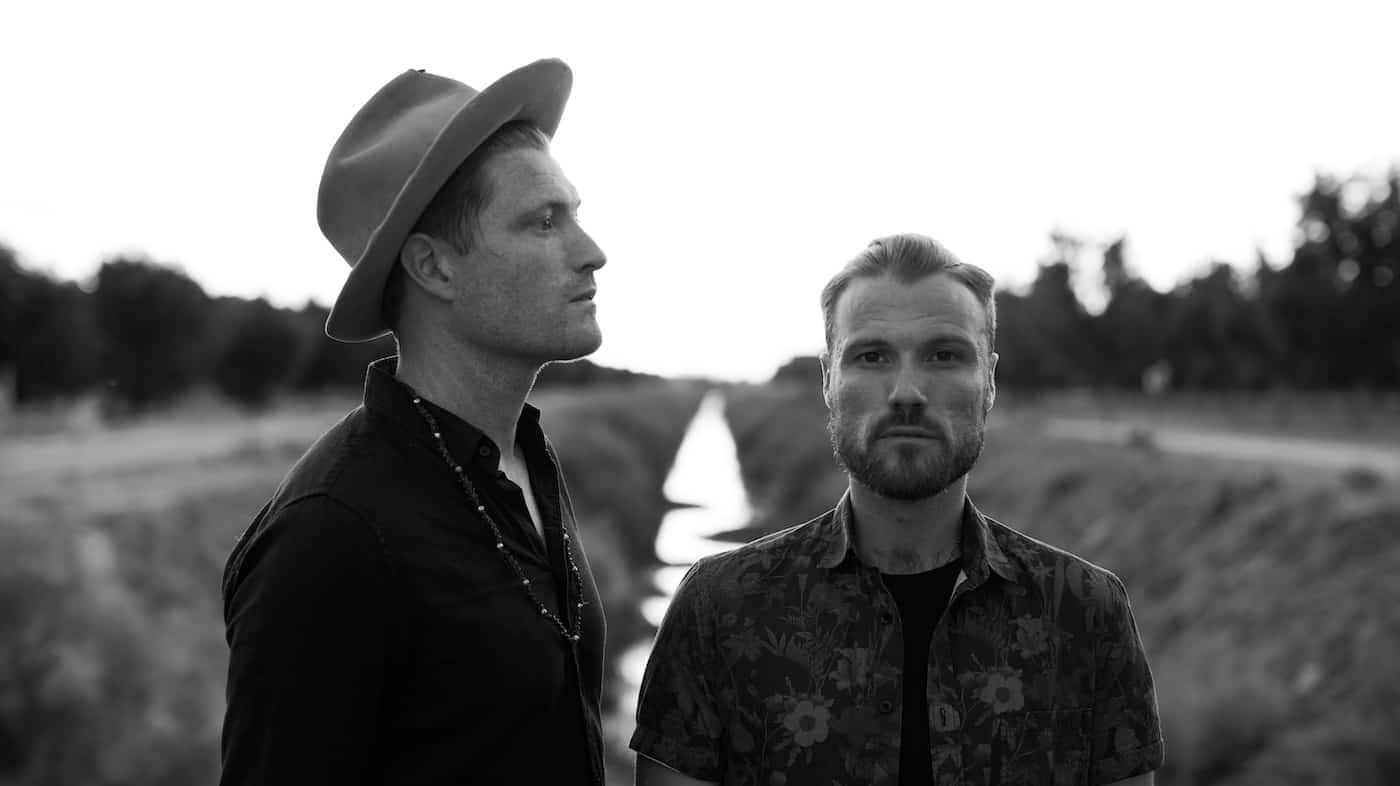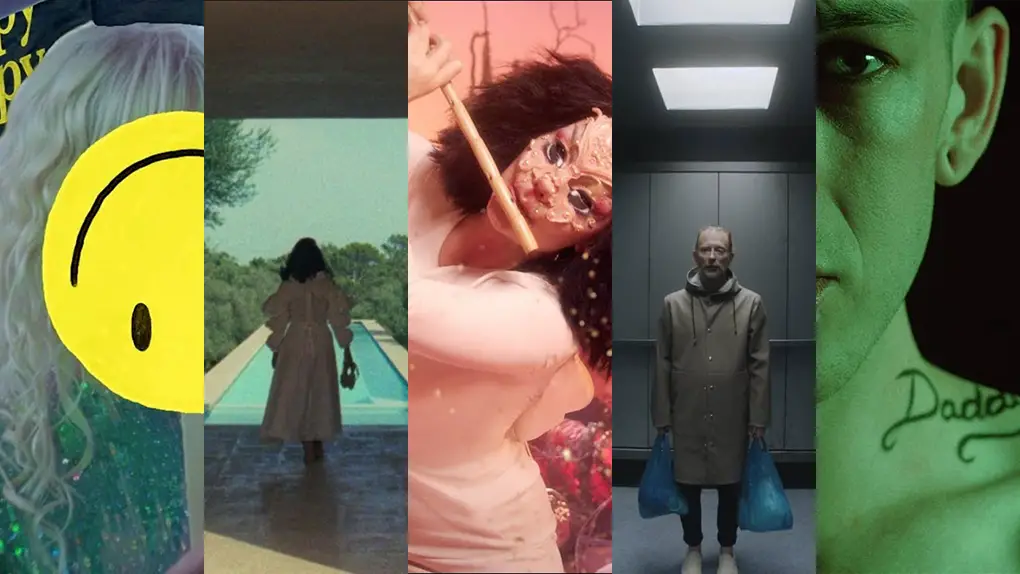Bully’s new album ‘SUGAREGG’ sees Alicia Bognanno shedding past responsibilities for new challenges. Atwood Magazine sits down to discuss the freedom of starting over.
Stream: “Where to Start” – Bully
No one who writes music ever has it as their goal to be compared to something that’s already happened.
The interview was choppy. A limited question base was used more as a topical checklist, guidelines for directing the conversation.
In hindsight, I was absolutely starstruck. As far as artists go, Bognanno is one who elicits a deeper respect; there is no lie in her music, just critical misinterpretation and recited rumblings of bygone subgenres. She will be the first to tell you her situation does not mirror the socioeconomic milieu of 1990.
Much ado about “the band,” of Bully, but Bognanno goes it alone. Well, not entirely alone — her dog sits in on the conversation too — as SUGAREGG sees her shed engineering responsibilities from her catch-all title as singer-songwriter-guitarist while completely retooling her session musicians. Both were efforts to clear air before attempting the third album.

Bognanno has always been one to invest herself totally into her work. To such a degree that she must the erase her cache before moving on to the next project lest songs like “Running” drive her crazy. Letting go came in the form of John Congleton, the master of producing masterclass modern rock. Whether St. Vincent or Sleater-Kinney, Congleton is a wizard at helping rock stars find their next voice. More importantly, his presence behind the console gave Bognanno the latitude to be in front of it. Lyrics are more detailed, riffs more considered and breaks more regular.
But not this time; COVID-19’s resultant unplanned concert break led to an ad hoc promotional campaign. Livestreams and covers have punctuated an emergency work stoppage. Bognanno has devoted herself to producing living room concerts and kitchen table covers to keep interest in her music and alleviate a content drought before the release of SUGAREGG.

The press releases will sell the idea that Bognanno “downed three double espressos” and listened to Isn’t Anything for a month straight before entering the studio. Not for my money; there’s a late Nineties swagger to the way she touts her songwriting, as if feeling catastrophic is just par for the course in a semi-cursed kind of life.Her voice is earnest yet casual, hinting at no troubles in recording waters but still willing to exemplify how and where she got in her own way or out of her own mind. This could apply to both the long-player’s lyrical content and her approach to the conversation.
“Forgetting all the comes with space/ Like your hello I still retrace and I/ Think unknowing you is the hardest thing/ I ever had to do,” she yowls with riot grrl rectitude.
“But I felt this way forever, some things stay the same, I stay the same,” she recalls in “Every Tradition,” past experiences from Losing still ringing true.
“I don’t know where to start/ I don’t know where to start with you/ You turn me back into a child/ Erratic, desperate, sad and wild,” she slingshots, each word a wayward stone found roadside and cut across the horizon. Is she waxing on heartbreak, or waning on feelings of writing another record?
We might never know; it’s all an experiment in storytelling, Bognanno explains. A third try to expound just what is happening in her world with all the enigmas of balladry and vitriol of punk in tow and sway.
Whatever your persuasion, be it the last gasp of a Kodak or the dawn of post-Cold War experience, SUGAREGG is purposed as titled: A keepsake, a knick-knack or a sunburn you would like to save. An album for you as you “change into a person you don’t know.”
I wanted to get back to where I was when I first started [Bully, and] be free to do what I wanted and not run it past people.
— —
:: stream/purchase Sugaregg here ::
Stream: ‘Sugaregg’ – Bully
A CONVERSATION WITH BULLY

Atwood Magazine: Where did the title of SUGAREGG come from?
Bully: It came from a podcast called Radio Lab. It was about someone who kept a sugar egg for most of their life. And I thought it was really sweet to keep something so fragile and usually little trinkets and stuff you end up throwing away as time goes by and move locations and I liked the idea of something like that… I liked the story, I liked the way the word sounds and I liked the mystery behind a sugar egg. I didn’t know what it was. I decided I wanted to name the record that before I even wrote it.
For this album you also reformatted the band into a solo outfit, why the change?
Bully: Yeah, it’s not too far off from what it was. The bass player left to go to school and then I just parted ways with the guitarist. Honestly, I feel we wore our time out. After you tour for so long, it just becomes kind of stale and I needed to hit the reset button. I wanted to get back to where I was when I first started [Bully,] be free to do what I wanted and not run it past people.

You were basically the engineer and the main guitarist and the main lyricist.
Bully: Yeah, I was the writer for the last two records, it’s not that much of a transition. It’s easier noew to say it’s a solo project. It was kind of a gray line for it. An awkward thing wherein what technically is a band? If you do x amount of stuff does that make it [a band?] I mean people still say it’s a band because it’s just rock music and it’s not my name and that’s fine. It doesn’t matter much to me.
What was it like to work with for-hire musicians rather than bandmates?
Bully: It was awesome. Wes goes on the road with me too. So he’s just fantastic. Both of them are really, really good at what they do and they’re really open-minded. They don’t have big egos. Fantastic to work with. It was by far the most enjoyable recording experience. We all got along, we all knew what we were there for. There wasn’t any tension over anything, really.
Speaking of new additions, your producer was THE John Congleton — sort of like THE Bruce Dickinson — what was it like to work with him?
Bully: He was super helpful. He really helped with [communication]. Every once in a while I would have a hard time communicating with Zach certain notes I wanted Zach to play. This would only happen once or twice, we were completely on the same page. And then there was a lot of me being like “this lyric or [that] lyric” or “this guitar part or [that] guitar part” and he would be able to see when I was going down a rabbit hole and… say “maybe it’s time for us to take a break.” And he was just really supportive and fantastic.
Was it really refreshing to let someone else take care of the engineering so you could stay focused on the lyric writing and melody writing of the album.
Bully: Yeah! I was really hesitant to have someone else engineering but as soon as I got into the studio I realized that I had made the right decision… So I just let him do his thing and he let me do mine and it was a really good learning experience. I definitely hear the growth in the record, just being able to focus my attention on the songs and the creative aspect and not having to compromise that by engineering as well.
It also seems you’re not sick of this record like you were Feels Like and Losing because you weren’t constantly in the music thinking, “Alright, I gotta drop this level and I gotta bring this up and I gotta work this thing here.” Did you feel more relaxed with this record release cycle?
Bully: Yeah, I just got more space from it and not having to mix it was huge. I genuinely like the record and am really proud of it. I think that helps. I’m proud of myself for changing things up. This record means a lot to me.
Am I also crazy to think you brought a lot more of the surf rhythms out from under the noise on SUGAREGG? It feels like your most surfable record yet, as in surf rock/surf punk.
Bully: Oh, I never have been asked anything about that. But I guess I can see in the chords from “Where to Start” and “Let You” where that comes from. Mm, no, that was never my intention but that’s cool, I’m glad that it comes off that way to you.
Maybe I’m just looking for surf punk in whatever I hear. But as far as SUGAREGG goes, it scratches that itch.
Bully: [chuckles] Good.
Am I crazy if I told you had moved past the grunge a lot of people always point out on Feels Like and Losing and into the post-grunge alternative rock of the late nineties? I thought I was going crazy when I realized “shit it sounds like there’s a little bit of Third Eye Blind or Chumbawamba in here.”
Bully: Oh my gosh, that’s not crazy. Thank you for saying that, I do not understand why we get called grunge all the time. I don’t hear it, I’m so confused. The constant Nineties comparisons I don’t mind if they’re here or there but I don’t feel that defines the sound. I feel we just got stuck in that category and now it’s perpetuated in the press.
People pointed out that your first two records sounded much like Nirvana or the Breeders or Hole, and you’ve been very matter-of-fact about it. My first inclination of an Ur-influence was the Pixies and from then on you just did your own thing.
Bully: Yeah, well I’m glad somebody gets it. No one who writes music ever has it as their goal to be compared to something that’s already happened.

It seems like an image out of your control. How does one deal with an image they can’t control. Do you just ignore it or do you bristle against it?
Bully: I think it used to upset me and now I’ve just come to terms with it. I mean, a bunch of my favourite musicians come out of the Nineties, so I can’t really talk that much about how I don’t like it. I think if you hear a band like Mannequin Pussy you’re not gonna call them a Nineties band and we’re in the same vein… I think it was something that was written off-the-bat and everybody just stuck with it and I questioned whether people are really listening to [the band] or just going off of old articles and the fact that we’re signed to Sub Pop.
Do you feel that this is your breakout record, or would say Feels Like was a breakout record, or that you have no breakout record?
Bully: I hope this one is a breakout record. I think this one deserves to be a breakout record, but I don’t think that one’s in my hands. I wish it was. [chuckles]
The constant Nineties comparisons, I don’t mind if they’re here or there, but I don’t feel that defines the sound. I feel we just got stuck in that category and now it’s perpetuated in the press.
— —
:: stream/purchase Sugaregg here ::
— — — —
Connect to Bully on
Facebook, Twitter, Instagram
Discover new music on Atwood Magazine
? © Angelina Castillo
:: Stream Bully ::








